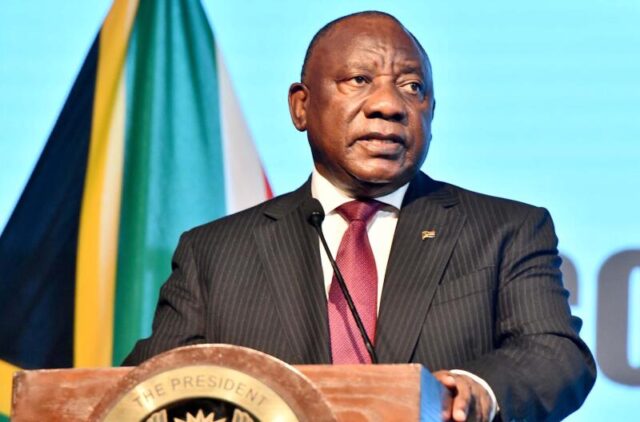As Human Rights Month draws to a close, President Cyril Ramaphosa used his weekly newsletter to focus on the right to social security, which is explicit in the Bill of Rights.
THE SOCIAL Relief of Distress (SRD) grant that was introduced in 2020 in response to the coronavirus pandemic has reached more than 11 million people at its peak and, according to President Cyril Ramaphosa, has lifted millions of people out of food poverty.
According to research, approximately 50% of the purchases made by SRD grant recipients are for groceries.
As Human Rights Month draws to a close, Ramaphosa used his weekly newsletter to focus on the right to social security, which is explicit in the Bill of Rights. This is an approach that recognises that social security is essential to other rights, including the right to dignity.
It is this right that has underpinned the progressive expansion of South Africa’s social protection system over the past three decades, he said.
In 1999, just over 2.5 million people were receiving social grants. Today, that number has increased to over 18 million people.
In addition, more than two million indigent households also receive free basic water, basic electricity and solid waste removal services as part of this government’s commitment to free basic services for the poor.
“Expanding the social wage is not simply an indication that more people need grants today than before, as some have tried to suggest. In the past, many of the poor, including working age adults who are unemployed, simply did not receive any support,” Ramaphosa penned.
In his newsletter this week, titled “Stimulating growth from the bottom up”, Ramaphosa said that social grants also act as a stimulus for the economy as a whole, increase spending in townships and rural areas, and improve employment outcomes.
He referred to an interview-based study by the University of Johannesburg of informal traders in the Johannesburg CBD, Orange Farm, Mthatha, Mqanduli and Warwick Junction in Durban, found that the SRD grant stimulated customer spending, provided capital to purchase stock, and enabled the new businesses to be initiated.
Informal traders and SRD grant recipients in Philippi in the Western Cape also told researchers that it had a positive impact on their businesses.
According to another recent study by researchers at the University of Cape Town, the SRD grant also increased the probability of recipients searching for jobs and gaining employment.
Similarly, many participants in the Presidential Employment Stimulus Initiative (PESI) have gone on to find work after they have completed the programme. The school assistants programme has provided opportunities for 750,000 young people to date in over 22,000 schools, reaching every corner of the country.
Over 72% of participants in the PESI said that having gained their first work experience, the programme helped them to gain a foothold in the labour market thereafter.
“In all of these ways, South Africa’s world-renowned social protection system provides important benefits for many in our society, not only those who receive social grants.
“It supports economic growth from the bottom up, enables business activity, and strengthens social solidarity and stability. It is one of the greatest achievements of our democratic society and one that we should all be proud of,” Ramaphosa wrote.
As he stated in the State of the Nation Address last month, the government is working on options to provide basic income support for the unemployed, within its fiscal constraints, beyond the expiry of the SRD grant in April next year.








